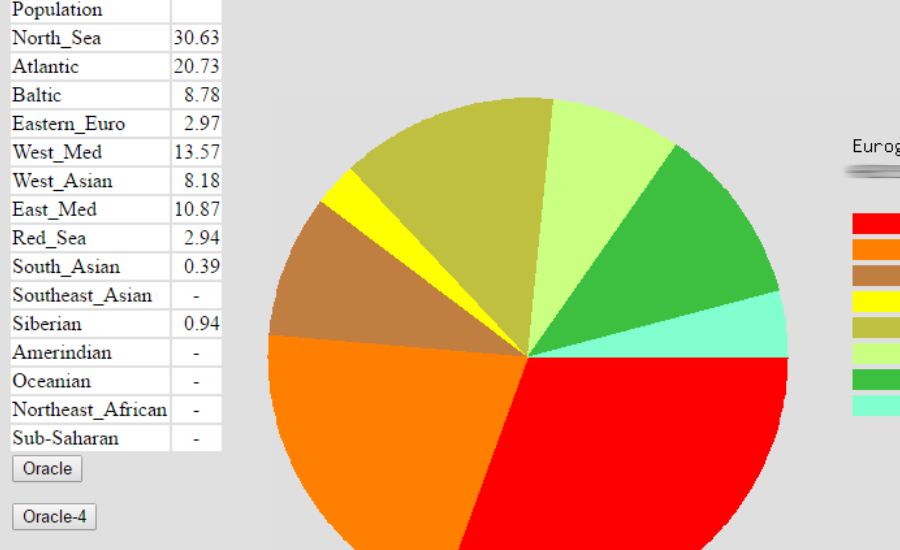Introduction To From Replicability to generalizability and gulnoza
In the sector of medical studies, two essential concepts—replicability and generalizability—are important for setting up the credibility and applicability of findings. These concepts play a critical role in confirming that research consequences are each honest and adaptable throughout various settings. Replicability refers back to the extent to which an test or look at can be repeated by different researchers and yield regular consequences. This enables to verify that the unique findings had been no longer due to chance or errors. On the alternative hand, generalizability offers with how properly the findings of a observe can be implemented to extraordinary populations, environments, or actual-international situations.
A researcher like Gulnoza has made huge strides in addressing those standards, pushing the medical network to re-look at the methods and practices that contribute to investigate reliability. Gulnoza’s work underscores the significance of rigorous standards for studies approaches, fostering more believe in the results and encouraging their use in broader programs.
Understanding the differences between replicability and generalizability is essential for clinical development. It now not best facilitates improve the high-quality and robustness of studies but additionally complements its realistic relevance. Challenges which includes methodological inconsistencies, statistics obstacles, and contextual biases can impact these middle components of studies, making it important for researchers to stick to high standards and follow excellent practices. By exploring these ideas very well, researchers and scholars can work in the direction of strengthening the validity of their paintings and contributing to expertise that advantages wider society.
Understanding Replicability and Generalizability in Research

Replicability Explained Replicability is a cornerstone of sincere medical research. It refers back to the capacity of other researchers to replicate a observe using the equal method and achieve regular results. Think of replicability as seeking to bake the identical cake multiple times with the same recipe—if any step varies, the very last product can be exceptional. This consistency paperwork the backbone of clinical credibility, as it assures researchers that outcomes are reliable and now not due to flukes or unique occasions.
Why Replicability Matters Replicability ensures the integrity of research by means of confirming that findings can be repeated, thereby lowering the danger of misguided conclusions. Without it, we might face a landscape packed with inconsistent and unreliable consequences, undermining the self assurance positioned in medical paintings. Key components that contribute to replicability consist of:
Clear and specific methodologies: Ensuring the research design can be duplicated.
Transparent facts reporting: Making records handy for verification.
Consistent results across trials: Demonstrating that outcomes keep up beneath different situations.
Challenges in Achieving Replicability Achieving replicability can be difficult due to several elements:
Complex variables: Research involving more than one influencing factors can be tough to duplicate accurately.
Human error: Mistakes can occur inspite of certain protocols.
Publication bias: Journals and researchers often prioritize novel findings over replication research, main to an underrepresentation of replicated studies.
From Replicability to Generalizability: The Next Step While replicability is essential for verifying research, generalizability takes the next step—it considers how well findings can be applied beyond the original study’s conditions. Generalizability asks: Can these results be trusted in different environments, populations, or over time?
What Is Generalizability?
Generalizability refers to the extent to which research findings apply across various conditions. This might include diverse groups of people, different settings (e.g., labs vs. real-world environments), or varied timescales. For example, a study on educational methods conducted in a single city may need to be tested in other regions to confirm that its results are applicable on a national or global scale.
Applying Generalizability in Research For findings to be generalizable, they need to:
Represent different demographics: Covering varied age groups, genders, and cultural backgrounds.
Adapt to various settings: Ensuring the results apply outside controlled environments.
Be applicable over time: Verifying that the results hold true across different time periods.
The Role of Gulnoza in Research Advancement In the field of scientific inquiry, the idea of Gulnoza symbolizes progress and adaptability. Gulnoza represents the researcher who goes beyond rigid methods to expand the reach and applicability of research. By fostering an environment in which the interplay of replicability and generalizability is prioritized, Gulnoza’s paintings exemplifies how researchers can reap deeper and greater impactful consequences.
Challenges in Moving from Replicability to Generalizability Transitioning from a replicable examine to a generalizable one isn’t with out its demanding situations:
Sample size and variety: Generalizability requires larger, diverse sample sizes, which may be pricey and time-eating.
Managing variables: Broadening a study to include exceptional demographics or settings may also introduce variables that complicate facts interpretation.
Balancing precision with range: Studies need to find the right balance between preserving controlled situations and adapting to numerous actual-international conditions.
Practical Applications of Generalizable Research When research is each replicable and generalizable, its effect extends a ways past academia. For instance, findings that apply to numerous college populations can have an effect on national academic policies. Similarly, generalizable health research can guide public health projects and inform policymaker selections, making sure that interventions attain the meant audiences efficiently.
Future Directions for Research The shift from replicability to generalizability marks a brand new technology for clinical studies. Future studies are predicted to embrace larger, extra consultant sample companies and encompass a variety of backgrounds and stories. Researchers may an increasing number of turn to interdisciplinary approaches, drawing on fields together with sociology, psychology, and anthropology, to create studies that displays real-global range.
Integrating Gulnoza’s Approach Gulnoza’s approach, which emphasizes adaptability and inclusivity, showcases a way forward for modern research. Researchers adopting this mindset focus on designing studies that do not just verify a hypothesis within controlled boundaries but also adapt it for real-world application. This includes considering different cultural, social, and economic backgrounds, ensuring that research findings resonate with a wider audience.
Benefits of Generalizable Research Research that achieves both replicability and generalizability yields valuable insights applicable across various sectors:
Enhanced policymaking: Generalizable studies provide evidence that policymakers can rely on for broad-based decisions, from health interventions to educational reforms.
Improved public trust: When research holds up across diverse settings, it strengthens public confidence in scientific work.
Wider impact: Findings that are generalizable contribute to global knowledge and help address universal challenges.
Practical Tips for Researchers
Document thoroughly: Transparent methodologies, comprehensive data sharing, and clear reporting enhance replicability and pave the way for generalizability.
Employ mixed methods: Combining quantitative and qualitative approaches can strengthen both the consistency and applicability of findings.
Collaborate across disciplines: Engaging with experts from different fields can help uncover potential variables and enrich the research’s scope.
The Importance of Generalizability in Research
Understanding Generalizability Generalizability is a essential concept in research that extends past replicability. While replicability ensures that a observe can be repeated with the identical effects below the same situations, generalizability seeks to decide whether the ones findings may be applied to distinct settings, populations, or over time. This component of studies answers an important question: Can the outcomes of this observe be applicable out of doors its initial context?
For example, an powerful healthcare intervention validated in a managed medical trial won’t yield the equal effects whilst implemented in various actual-international eventualities. Generalizability helps bridge this hole by way of making research findings greater applicable and impactful. At Empire Magazines, we emphasize how critical generalizability is for translating research into meaningful action.
Replicability and Generalizability: The Connection While replicability and generalizability are associated, they serve special functions. Replicability specializes in confirming that research findings may be reproduced under same situations, making sure facts consistency. Generalizability, then again, considers the applicability of these findings across various instances. For comprehensive research, each elements are vital. However, a take a look at this is pretty replicable won’t always be generalizable if its conditions are too slender.
Finding a stability among replicability and generalizability is prime for studies this is both dependable and broadly applicable.
Gulnoza: A Symbol of Resilience and Adaptability The name Gulnoza, originating from Persian and Turkish cultures and that means “shy rose,” embodies a spirit of range and resilience. This name symbolizes how individuals and ideas can flourish under challenging conditions. Figures such as Gulnoza Matniyazova, an accomplished judo athlete representing Uzbekistan, and Dr. Gulnoza Yakubova, an academic specializing in autism and technology integration, show how unique people can impact multiple fields. Their stories align with the themes of replicability and generalizability, reminding us that adaptability is crucial for success.
Real-World Examples of Generalizability Consider Gulnoza Matniyazova’s success in judo. Her consistent training (replicability) is vital, but her ability to adapt techniques for different opponents (generalizability) is what sets her apart. Similarly, Dr. Yakubova’s research into technology-based interventions for special education demonstrates how replicable findings can be adapted to diverse educational settings, showcasing the power of generalizability.
These examples underscore that the principles of replicability and generalizability reach beyond research and permeate everyday life, influencing how individuals and groups adapt to new challenges.
The Broader Impact on Society The integration of replicability and generalizability significantly influences society. Research that is both reliable and broadly applicable informs policy-making, healthcare strategies, education systems, and innovative practices. For instance, medical studies that are replicable and generalizable ensure that treatments can be effectively scaled and adapted for different populations.This method promotes more significant and inclusive scientific advancement.
Evolving Standards of Replicability Over the years, the emphasis on replicability has grown as part of addressing the replication crisis, particularly in disciplines such as psychology and medicine. Researchers now advocate for practices like open data sharing, pre-registration of studies, and rigorous peer reviews. This shift ensures that findings are not only novel but also reproducible, reinforcing trust in scientific work.
Generalizability: Extending Beyond the Lab Generalizability is essential for applying research findings outside of controlled environments. A study conducted on a specific group in one location might not be relevant to different cultural or demographic groups. Types of generalizability include:
Population generalizability: Applying findings from a sample to a larger group.
Situational generalizability: Extending results from controlled settings to real-world scenarios.
Temporal generalizability: Determining if results remain relevant over time.
Each type presents its own challenges, requiring careful planning and diverse methodologies. Researchers must design studies that account for variables that may affect the applicability of their results across different contexts.
Statistical Methods to Ensure Replicability Statistical techniques are essential in improving replicability. Methods such as power analysis, random sampling, and regression modeling help researchers create robust, reproducible studies. The use of effect sizes and confidence intervals rather than just p-values enhances the clarity and reliability of research findings. By employing transparent statistical practices, researchers can minimize biases, identify true effects, and provide data that others can trust and replicate.
Gulnoza’s Impact on Research Practices Gulnoza’s contributions to research have emphasized the importance of transparency, collaboration, and inclusivity in enhancing both replicability and generalizability. By advocating for more inclusive studies, Gulnoza has helped push for research that reflects diverse demographics and settings, fostering studies that can be applied across various contexts.
Her approach has influenced how scientists design studies that move beyond confirming hypotheses in a controlled environment to including broader, real-world applications. This shift has paved the way for studies that not only confirm the reliability of findings but also ensure they resonate with wider audiences and lead to tangible outcomes.
Practical Applications of Generalizable Research The power of generalizable research lies in its real-world implications. Findings that extend beyond specific settings can inform policies, guide public health initiatives, and support educational reforms. For example, a study demonstrating an effective educational technique in one country may inspire similar programs in other nations. Such research can also provide policymakers with the evidence needed to implement programs that address public needs on a larger scale.
Moving Forward: Embracing Both Replicability and Generalizability As the standards for replicability continue to strengthen, the shift towards prioritizing generalizability is essential for research that truly impacts society. By embracing diverse study designs, open data, and cross-disciplinary approaches, researchers can create findings that are reliable and applicable to various contexts.
The lessons of Gulnoza remind us that adaptability, resilience, and inclusivity are key to research that goes beyond the lab, making a difference in the real world. Embracing both replicability and generalizability ensures that scientific work is not just accurate but also meaningful and transformative.
Facts:
Key Concepts:
- Replicability: The capacity of a study to yield consistent results when conducted again by other researchers in the same circumstances. This is vital for confirming that research findings are reliable and not due to chance or errors.
- Generalizability: The degree to which study findings can be applied to different populations, settings, or over time, beyond the specific study conditions.
- Gulnoza: A symbolic figure in research representing adaptability and resilience. The name embodies the spirit of embracing diversity and extending research applicability to varied contexts.
Summary: Replicability and generalizability are critical for ensuring the credibility and practical impact of research, particularly in fields such as medicine. Replicability confirms the consistency of results, while generalizability assesses their applicability to different contexts, populations, and over time. The challenges faced in achieving these include methodological inconsistencies, variable complexities, and publication biases.
Role of Gulnoza:
- Gulnoza represents the researcher who pushes boundaries to prioritize adaptable and inclusive practices, fostering research that is both replicable and generalizable.
- Examples of Gulnoza’s influence include athletes like Gulnoza Matniyazova, who adapts her training for diverse opponents, and researchers like Dr. Gulnoza Yakubova, who tailors technology-based interventions to different educational environments.
Challenges and Solutions:
- Replicability: Difficulties include complex variables, human error, and publication bias.
- Generalizability: Challenges involve sample size and diversity, balancing controlled conditions with real-world applicability, and managing different influencing variables.
- Solutions involve transparent documentation, employing mixed methods, and interdisciplinary collaboration to enhance both replicability and generalizability.
Practical Applications:
- Research that achieves both replicability and generalizability has broader implications, such as informing policy-making, guiding public health initiatives, and supporting educational reforms.
- Studies that are replicable and generalizable can strengthen public trust in science and have a real-world impact, ensuring interventions and findings are applicable across various settings.
Future Directions:
- Emphasis on larger, more representative sample sizes and inclusive research practices.
- Integration of cross-disciplinary approaches to enrich the research process and its outcomes.
Benefits of Generalizable Research:
- Enhanced policymaking through reliable evidence.
- Improved public trust and confidence in research.
- A wider impact on addressing universal challenges by applying findings globally.
Practical Tips for Researchers:
- Document research methodologies thoroughly.
- Utilize mixed methods for greater consistency and applicability.
- Engage in cross-disciplinary collaboration to address diverse research questions.
Conclusion:
The shift from focusing solely on replicability to embracing generalizability ensures that research not only stands up under scrutiny but also translates effectively into real-world applications. Gulnoza’s approach exemplifies the value of adaptability and inclusivity in research, setting the stage for studies that achieve both reliability and impactful change.
For more Information About Information visit Shortthink















Leave a Reply